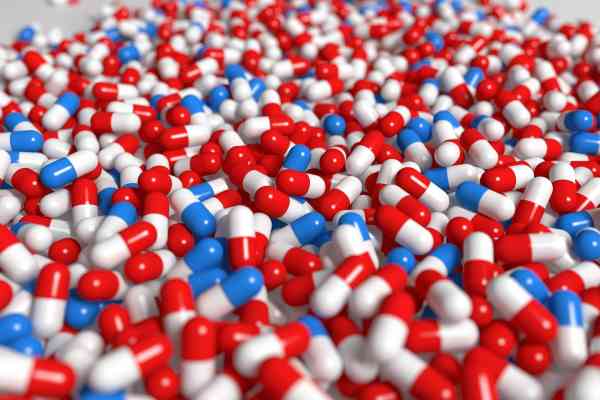February 27th, 2020 | 06:20 CET
Burcon NutraScience, dynaCERT, NEL ASA - which technology makes investors rich?
At the moment the stock markets are on a downward trend and the majority of shares have moved away from their recent highs. A healthy attitude towards life can sometimes still enable you to find a lucrative opportunity in a difficult situation. Those who have so far failed to position themselves in the hot future topics of energy and nutrition can once again strike at prices that were possible about a month ago. An opportunity like time travel. A second chance for investors is obvious.
time to read: 3 minutes
|
Author:
Mario Hose
ISIN:
NO0010081235 , CA26780A1084 , CA1208311029
Table of contents:
Author
Mario Hose
Born and raised in Hannover, Lower Saxony follows social and economic developments around the globe. As a passionate entrepreneur and columnist he explains and compares the most diverse business models as well as markets for interested stock traders.
Tag cloud
Shares cloud
Plant-based proteins for modern nutrition
Burcon NutraScience is a technology company focused on the development of plant proteins. The advantage of Burcon's proteins is that they are prepared for their intended use, replacing and eliminating animal proteins in food. If you think about Beyond Meat now, you are already on the right track, with burgers representing only a fraction of the market for plant proteins. Recently, food giant Nestle announced that they will be working with Burcon in the future and will use the patented proteins in their product portfolio.
Burcon's proteins are a blessing for humans, animals and the food industry because they have a qualitative consistency compared to animal proteins. The price for vegetable proteins is also lower and can be kept stable. In addition, the environmental balance of plant proteins leaves a much better CO2 footprint than animal proteins. Burcon has a license to print money with its patents and is currently valued at CAD 130 million on the stock exchange.
Hydrogen makes diesel green
What Burcon figuratively does with ready meals, dynaCERT does with a patented hydrogen technology for diesel engines. The technology company has succeeded in developing devices that produce hydrogen on demand from commercially available distilled water. This hydrogen and oxygen are then added to the combustion in the diesel engine as a catalyst. The efficiency of the combustion is increased by this retrofit technology, so that fuel consumption can be reduced by up to 20%. Depending on use, this saving ensures that the purchase costs are usually amortized within one year.
In addition to these economic advantages, the environment is also considerably relieved. NOx emissions are reduced by up to 88%. The emission of particulate matter is reduced by up to 55%. Likewise, a reduction in CO2 emissions of up to 10% is achieved. Considering that there are about one billion diesel engines in use worldwide, the potential of dynaCERT is correspondingly large. The company is currently valued at the stock exchange at CAD 360 million.
Green hydrogen convinces
In modern society, hydrogen is increasingly being considered as the energy carrier of the future. As an energy carrier, hydrogen has the advantage, for example, that mobility is emission-free. The catch to the technology, however, is that the CO2 balance can only show an advantage over combustion engines if the electricity used to produce hydrogen comes from renewable energy sources. The advantage of hydrogen as an energy carrier in mobility compared to batteries is that the production and disposal of large batteries can be avoided. A further and practical advantage of hydrogen is that users do not have to change their behaviour, as it takes as long to refuel vehicles with hydrogen as it does with petrol and diesel.
A filling station network for hydrogen could be based on an existing network. There are currently over 14,000 filling stations in Germany. NEL ASA wants to earn money in the future by building up a network of filling stations and producing hydrogen. However, hydrogen as an energy fuel in mobility currently still has a chicken/egg problem because there are still too few filling stations and affordable vehicles. NEL ASA is now valued at 1.5 billion EUR.
Potentials are obvious
In conclusion, Burcon's potential has not yet been discovered by the market, giving it the character of an insider tip. The company is currently in the process of building production lines and once the lines are up and running, the scalable business model will bear great fruit. The dynaCERT technology is based on existing engines and thus saves considerable acquisition costs for new vehicles. Users save money on fuel and do something for the environment. No wonder investors are clamoring for the stock. At NEL ASA, a lot of advance praise has already been priced in, but political decisions regarding hydrogen may still give further room for speculation.
Conflict of interest
Pursuant to §85 of the German Securities Trading Act (WpHG), we point out that Apaton Finance GmbH as well as partners, authors or employees of Apaton Finance GmbH (hereinafter referred to as "Relevant Persons") may in the future hold shares or other financial instruments of the mentioned companies or will bet on rising or falling on rising or falling prices and therefore a conflict of interest may arise in the future. conflict of interest may arise in the future. The Relevant Persons reserve the shares or other financial instruments of the company at any time (hereinafter referred to as the company at any time (hereinafter referred to as a "Transaction"). "Transaction"). Transactions may under certain circumstances influence the respective price of the shares or other financial instruments of the of the Company.
Furthermore, Apaton Finance GmbH reserves the right to enter into future relationships with the company or with third parties in relation to reports on the company. with regard to reports on the company, which are published within the scope of the Apaton Finance GmbH as well as in the social media, on partner sites or in e-mails, on partner sites or in e-mails. The above references to existing conflicts of interest apply apply to all types and forms of publication used by Apaton Finance GmbH uses for publications on companies.
Risk notice
Apaton Finance GmbH offers editors, agencies and companies the opportunity to publish commentaries, interviews, summaries, news and etc. on news.financial. These contents serve information for readers and does not constitute a call to action or recommendations, neither explicitly nor implicitly. implicitly, they are to be understood as an assurance of possible price be understood. The contents do not replace individual professional investment advice and do not constitute an offer to sell the share(s) offer to sell the share(s) or other financial instrument(s) in question, nor is it an nor an invitation to buy or sell such.
The content is expressly not a financial analysis, but rather financial analysis, but rather journalistic or advertising texts. Readers or users who make investment decisions or carry out transactions on the basis decisions or transactions on the basis of the information provided here act completely at their own risk. There is no contractual relationship between between Apaton Finance GmbH and its readers or the users of its offers. users of its offers, as our information only refers to the company and not to the company, but not to the investment decision of the reader or user. or user.
The acquisition of financial instruments entails high risks that can lead to the total loss of the capital invested. The information published by Apaton Finance GmbH and its authors are based on careful research on careful research, nevertheless no liability for financial losses financial losses or a content guarantee for topicality, correctness, adequacy and completeness of the contents offered here. contents offered here. Please also note our Terms of use.




